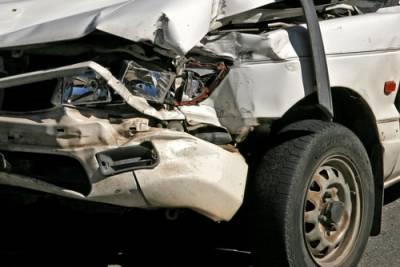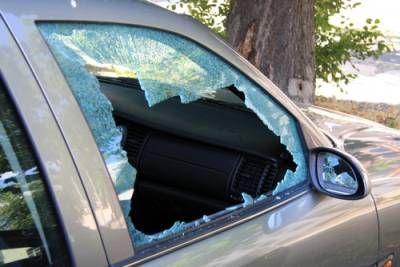Recent Blog Posts
What to Expect During an Illinois DUI Stop
 It is always a scary feeling to see red and blue flashing lights in your rear-view mirror, especially if you know you’ve had a few drinks before getting behind the wheel. A lot of people think that they will be arrested for a DUI offense if they have a blood alcohol content (BAC) over the legal limit and so they refuse the necessary tests during the traffic stop.
It is always a scary feeling to see red and blue flashing lights in your rear-view mirror, especially if you know you’ve had a few drinks before getting behind the wheel. A lot of people think that they will be arrested for a DUI offense if they have a blood alcohol content (BAC) over the legal limit and so they refuse the necessary tests during the traffic stop.
It is within a person’s rights to refuse the breathalyzer test and the typical field sobriety test during the traffic stop, however, that would result in an automatic one-year suspension of a driver’s license and a possible arrest where the test will be administered at the police station.
However, an arrest is not usually made unless the officer knows for sure that a driver is drunk. How do they figure that out without a chemical or field sobriety test? They observe a driver’s behavior, movements, smells, and use techniques to properly determine the sobriety.
Consequences of Falling Asleep While Driving
 A recent study from the National Highway Traffic Safety Administration concluded that on a national scale, falling asleep behind the wheel of a car has caused 72,000 crashes - 44,000 injuries and up to 6,000 deaths. Drivers are expected to keep control of their vehicles at all times, so, in Illinois, if someone falls asleep at the wheel, they can at least be issued a traffic ticket. In cases where another person was hurt or killed by a drowsy driver, the offender will face felony charges.
A recent study from the National Highway Traffic Safety Administration concluded that on a national scale, falling asleep behind the wheel of a car has caused 72,000 crashes - 44,000 injuries and up to 6,000 deaths. Drivers are expected to keep control of their vehicles at all times, so, in Illinois, if someone falls asleep at the wheel, they can at least be issued a traffic ticket. In cases where another person was hurt or killed by a drowsy driver, the offender will face felony charges.
Penalties that Result from Drowsy Driving
It is not safe to drive when you are tired. Drivers who do not only put themselves at risk, but also endangers the lives of others on the road or pedestrians walking along the side of the road.
This is why anyone who causes an accident while driving sleepily will face reckless driving penalties which in most cases means a Class A misdemeanor. There are some exceptions which make the charges felony offenses:
Understanding Property Damage Charges in Illinois
 Anger can result in a person lashing out in a variety of ways. They can lash out verbally by threatening a person who is causing their anger or they can lash out physically by assaulting someone or damaging their property.
Anger can result in a person lashing out in a variety of ways. They can lash out verbally by threatening a person who is causing their anger or they can lash out physically by assaulting someone or damaging their property.
In the state of Illinois, property damage can lead to either misdemeanor or felony charges depending on the seriousness of the damage that occurs during the violation. The more money it costs to fix the property that was damaged, the higher the consequences for the offender.
Illinois Criminal Property Damage Law
Illinois law makes it clear what is considered a property damage offense and what the proper consequence should be based on the evidence provided. The following are offenses that are included in the Illinois Criminal Property Damage Law:
Will Growing Marijuana Be Legal Next Year?
 Contrary to popular belief, it will not be a free-for-all beginning the first of the year when marijuana for recreational use becomes legal in Illinois. There are still certain regulations that will need to be followed. One part of the Illinois drug law that will not change in 2020 is that no one is permitted to grow cannabis plants in their home. The only exception to that rule is medical marijuana users; they will need a doctor’s note to do so (up to five plants).
Contrary to popular belief, it will not be a free-for-all beginning the first of the year when marijuana for recreational use becomes legal in Illinois. There are still certain regulations that will need to be followed. One part of the Illinois drug law that will not change in 2020 is that no one is permitted to grow cannabis plants in their home. The only exception to that rule is medical marijuana users; they will need a doctor’s note to do so (up to five plants).
Anyone caught growing cannabis without a doctor’s permission will face a drug charge and be fined $200. Instead of growing it, Illinois residents will be able to purchase the drug from any one of 20 cultivation facilities that have already been licensed to sell marijuana.
What Does the Law Currently Say?
There are still several months before marijuana becomes legal in Illinois. Until that time, residents should abide by the drug law or face felony punishments if caught possessing any illegal substance.
Failure to Yield at a Railroad Crossing Leads to License Suspension
 Illinois was ranked fifth in the country by the Federal Railroad Association for railroad crossing collisions in 2018. In total, Illinois saw 109 collisions (17 deaths and 34 injuries), most of which occurred because safety regulations were not being met by the motorists. Failing to obey the signs that a train is coming is not only a traffic violation, but it also puts lives at risk, as proven by the aforementioned statistics. Not only is the motorist risking their life by trying to beat a train through a crossing, but innocent bystanders can be hurt or killed by debris after a crash.
Illinois was ranked fifth in the country by the Federal Railroad Association for railroad crossing collisions in 2018. In total, Illinois saw 109 collisions (17 deaths and 34 injuries), most of which occurred because safety regulations were not being met by the motorists. Failing to obey the signs that a train is coming is not only a traffic violation, but it also puts lives at risk, as proven by the aforementioned statistics. Not only is the motorist risking their life by trying to beat a train through a crossing, but innocent bystanders can be hurt or killed by debris after a crash.
Signs That a Train Is Approaching
There is plenty of warning given to drivers when they are approaching a train crossing. There will be signs indicating that a crossing is coming up and there may even be lights flashing to alert drivers to prepare to stop.
When a train is approaching, motorists will see:
Driving without Headlights Can Result in Reckless Driving Charges in Illinois
 The state of Illinois defines reckless driving as anyone operating a motor vehicle with a willful disregard for the safety of other people sharing the road and/or crossing the road. Driving at night without a vehicle’s headlights illuminated can be an act of reckless driving because it is harder for a driver to see the road without the lights on.
The state of Illinois defines reckless driving as anyone operating a motor vehicle with a willful disregard for the safety of other people sharing the road and/or crossing the road. Driving at night without a vehicle’s headlights illuminated can be an act of reckless driving because it is harder for a driver to see the road without the lights on.
Reckless driving charges are usually punishable as misdemeanor offenses, but depending on the seriousness of the outcome, the charges can be elevated to felony offenses.
According to Illinois law, all vehicles are required to have either two or one working headlight; two headlights for cars/trucks and one for motorcycles. The lights must be illuminated during nighttime hours or during the day when:
- The weather is dangerous: rainy, snowy, icy, foggy
- Driving through mountainous roads
- If there are signs indicating lights should be used
What Are the Penalties for Driving with a Suspended License in Illinois?
 Teenagers across the country are excited about turning 16 years old because they will be able to earn their driver’s license and operate a motor vehicle on their own. However, not all of them realize that it is very easy to lose driving privileges and driving with a suspended license can lead to serious traffic violation punishments.
Teenagers across the country are excited about turning 16 years old because they will be able to earn their driver’s license and operate a motor vehicle on their own. However, not all of them realize that it is very easy to lose driving privileges and driving with a suspended license can lead to serious traffic violation punishments.
Drivers can have their licenses suspended - or revoked - as a result of many other traffic offenses:
- DUI
- Failure to appear in court for a traffic violation
- Parking restrictions if a driver receives 10 or more parking violations, they will have parking restrictions on their license
- Automatic suspension issued if a driver fails to pay five or more fines for previous traffic violations
- Family Financial Responsibility Law, which can be court-ordered for driving privileges to be suspended if a person does not pay their child support
Defending Your Rights in a Search and Seizure
 Illinois police will be authorized to perform a search and seizure for a number of different crimes, including suspicion of drug possession and/or sale. However, there are rules that officers must follow in order to legally perform their duties.
Illinois police will be authorized to perform a search and seizure for a number of different crimes, including suspicion of drug possession and/or sale. However, there are rules that officers must follow in order to legally perform their duties.
Officers are not permitted to simply enter a private home without a warrant for the search and seizure. The Fourth Amendment of the United States Constitution protects a person in their own home from unreasonable searches.
What Is an Illegal Search and Seizure?
The Fourth Amendment says that a person is safe in the privacy of their home, documents, and effects from seizure and that no warrants will be issued unless there is probable cause for the search. This differs from the early days of the amendment when “general warrants” were issued and homes could be searched with no evidence at all.
What Are the Full Consequences of Underaged Drinking in Illinois?
 There is a minimum drinking age in the United States for a reason. The law was put into place because there are a number of concerns when teenagers or younger drink alcohol. Minors under the age of 21 years old will face misdemeanor charges if they are caught drinking alcoholic beverages. However, there are also several health and social consequences that underage drinking can lead to.
There is a minimum drinking age in the United States for a reason. The law was put into place because there are a number of concerns when teenagers or younger drink alcohol. Minors under the age of 21 years old will face misdemeanor charges if they are caught drinking alcoholic beverages. However, there are also several health and social consequences that underage drinking can lead to.
In Illinois, there is one exception when it comes to possessing alcohol and that is for those who are bartenders. Establishments may hire those as young as 18 years old to distribute alcohol to customers, but they still cannot consume the drinks themselves.
Buying and Selling Alcohol to Minors
It is unlawful for any person(s) under the legal drinking age of 21 years old to buy or attempt to buy alcoholic beverages with the help of a fake ID. First offenders will have their driver’s license suspended for three months and be under court supervision for six months. Subsequent offenses turn the suspension into a one-year term and court supervision will be required for the full year as well.
Move Over Laws in Illinois
 The state of Illinois observes a special law when it comes to stopping for an ambulance or any other emergency vehicle. Scott’s Law - also known as the “Move Over” Law - was created in memorial of Scott Gillen, a Chicago firefighter who was struck and killed while assisting victims in a crash. The drunk driver of the vehicle that killed Gillen did not leave enough room when traveling around the accident. If a driver does not obey Scott’s Law or give room to a moving emergency vehicle - such as a police car or an ambulance - they are committing a traffic violation punishable by fines and even prison time.
The state of Illinois observes a special law when it comes to stopping for an ambulance or any other emergency vehicle. Scott’s Law - also known as the “Move Over” Law - was created in memorial of Scott Gillen, a Chicago firefighter who was struck and killed while assisting victims in a crash. The drunk driver of the vehicle that killed Gillen did not leave enough room when traveling around the accident. If a driver does not obey Scott’s Law or give room to a moving emergency vehicle - such as a police car or an ambulance - they are committing a traffic violation punishable by fines and even prison time.
Why It Is Important to Move Over for Ambulances
If you see an ambulance driving down the road, more times than not they are en route to saving someone else’s life. If their lights are flashing, it is a real emergency and those on the road are required by law to slowly drive as close to the right side of the road as possible. This will give the emergency vehicle more room and a more clear path to their destination.







